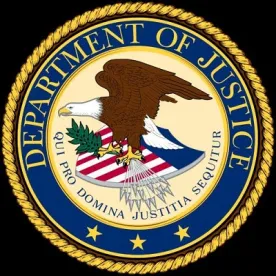Over the last several years, antitrust prosecutors at the Department of Justice have repeatedly cautioned that anticompetitive agreements affecting labor markets can be the subject of criminal prosecution under the antitrust laws. On December 10, the DOJ announced the first such prosecution against a Texas health care provider.
According to DOJ’s indictment, Neeraj Jindal, the owner of a physical therapy staffing company in the Dallas-Fort Worth area, agreed with co-conspirators to pay lower rates to physical therapists and physical therapist assistants from March 2017 until August 2017. Jindal was also indicted for obstruction of a Federal Trade Commission investigation into the conduct.
The head of DOJ’s Antitrust Division, Makan Delrahim, described the charges as “an important step in rooting out and deterring employer collusion that cheats American workers — especially health care workers — of free market opportunities and compensation.” Delrahim added that “employers who conspire to fix the wages of workers or restrict their mobility by allocating labor markets will be prosecuted to the fullest extent of the law.”
The indictment of Jindal is the first criminal prosecution of a wage fixing agreement since DOJ’s 2016 announcement that it would “proceed criminally against naked wage-fixing or no-poaching agreements.” As DOJ and FTC explained in their guidance for human resources professionals, “these types of agreements eliminate competition in the same irredeemable way as agreements to fix product prices or allocate customers, which have traditionally been criminally investigated and prosecuted as hardcore cartel conduct.”
Health care providers have repeatedly been the subject of criminal antitrust enforcement in 2020. In April, one of the largest independent oncology groups in the United States, Florida Cancer Specialists & Research Institute LLC (FCS), admitted its involvement in a criminal antitrust conspiracy to allocate markets for medical oncology and radiation oncology treatments provided to cancer patients from 1999 to 2016. Under the terms of a deferred prosecution agreement, FCS agreed to pay a $100 million penalty to avoid prosecution. FCS also agreed to pay $20 million in disgorgement in a settlement with the Florida Attorney General. In September 2020, a federal grand jury indicated FCS’s founder and former president for participating in the same market-allocation conspiracy.
Both investigations remain ongoing.
Takeaways
-
The December 10 indictment shows that naked wage-fixing agreements between employers can be prosecuted criminally under the antitrust laws. DOJ has cautioned that naked “no-poach” agreements between employers not to steal another company’s employees may also lead to criminal charges.
-
2020 continues to be a busy year for antitrust enforcement in the health care industry. In addition to the criminal enforcement actions described in this alert, the FTC has challenged three mergers between healthcare providers on antitrust grounds.
-
To account for increased risk in this area, companies should reevaluate their antitrust compliance programs, particularly as they relate to human resource functions. Companies should strongly consider providing regular antitrust-compliance training to human resources professionals, as well as senior management and employees with responsibility for price setting, competitive strategy, and competitive bids.
-
Human resources employees should be trained to identify the red flags of collusion and should know what to do when problematic activity occurs. Human resources professionals should also know when to consult with counsel. In some circumstances, it may be lawful to include no-poach provisions in agreements.






 />i
/>i

